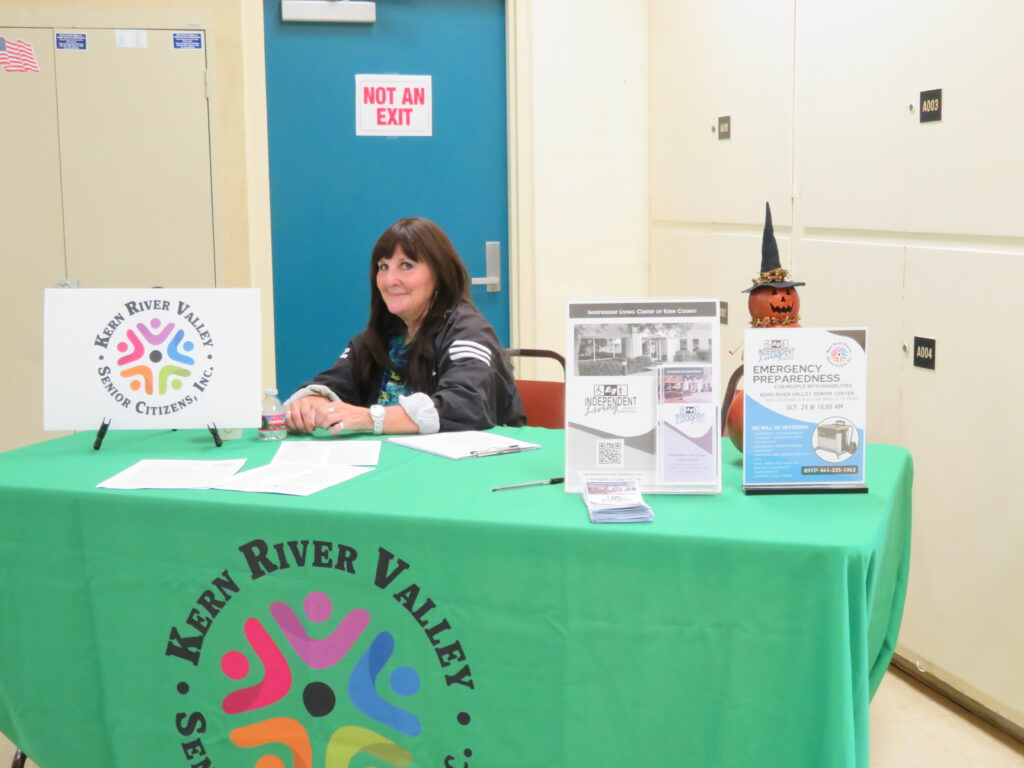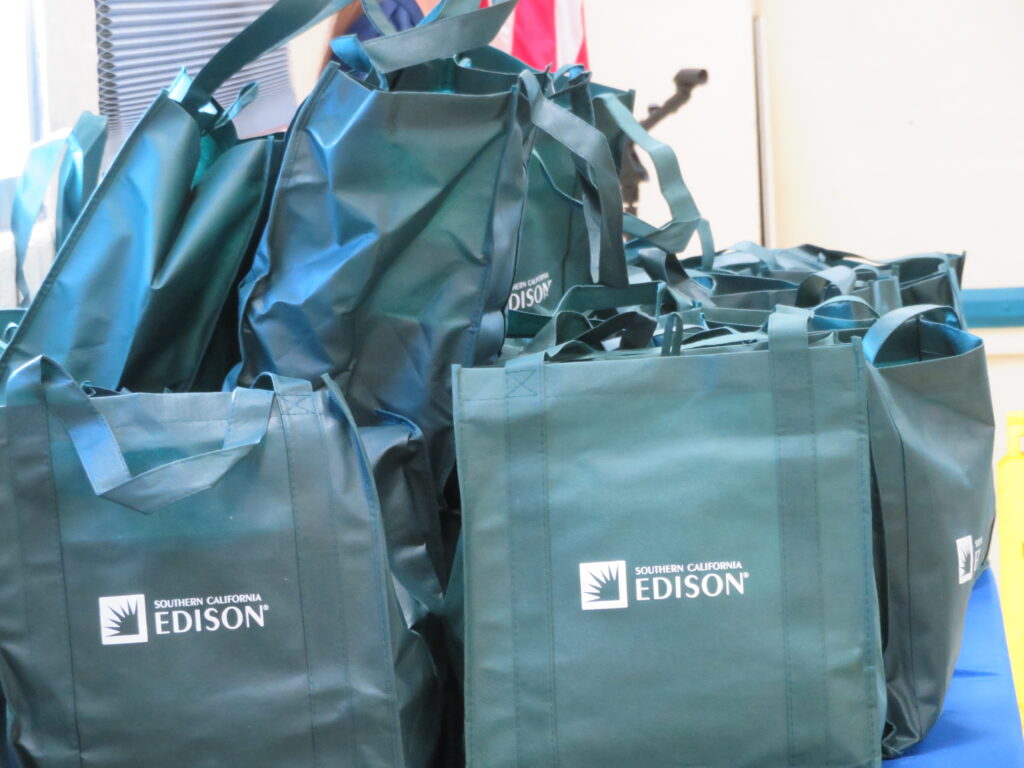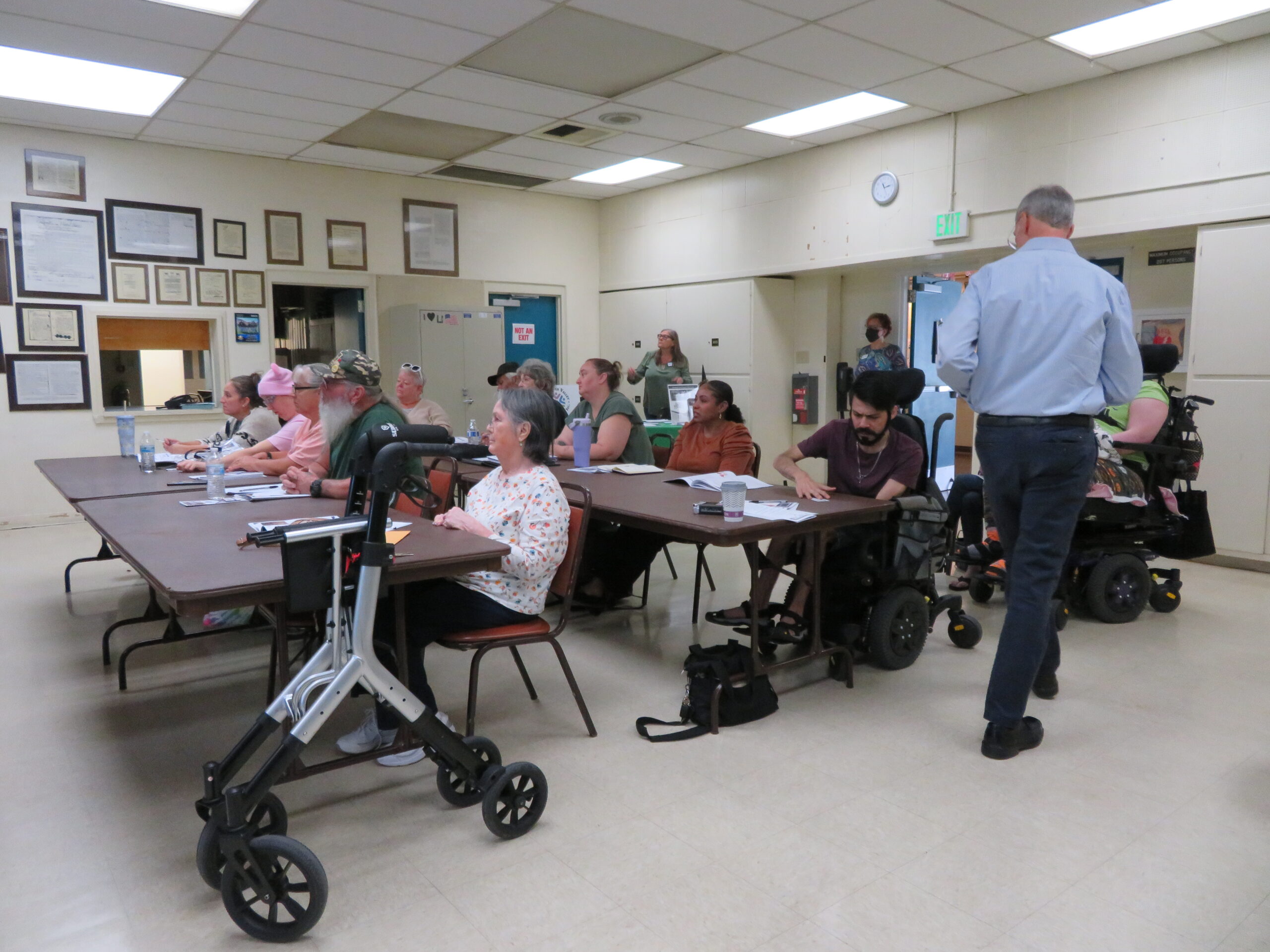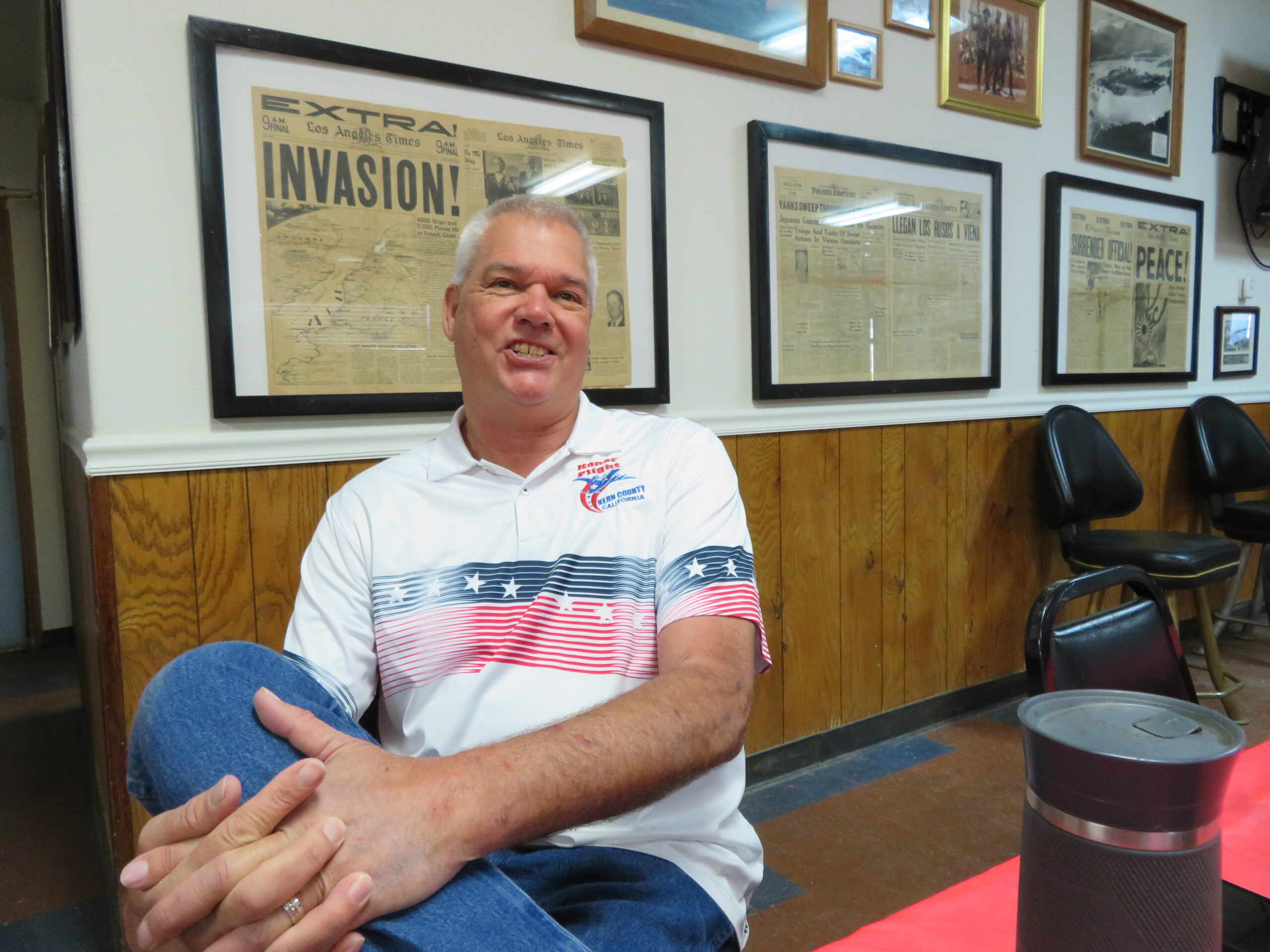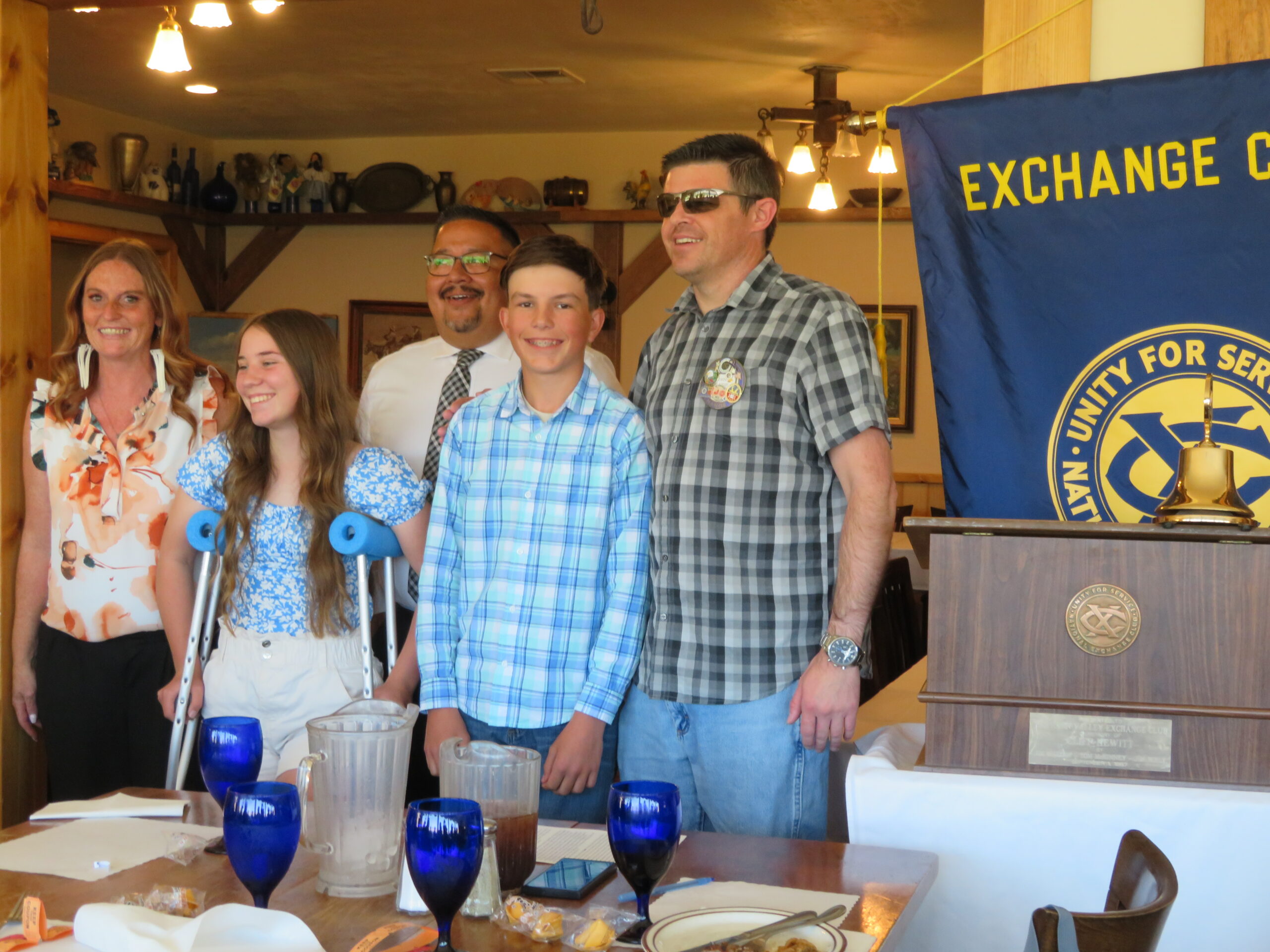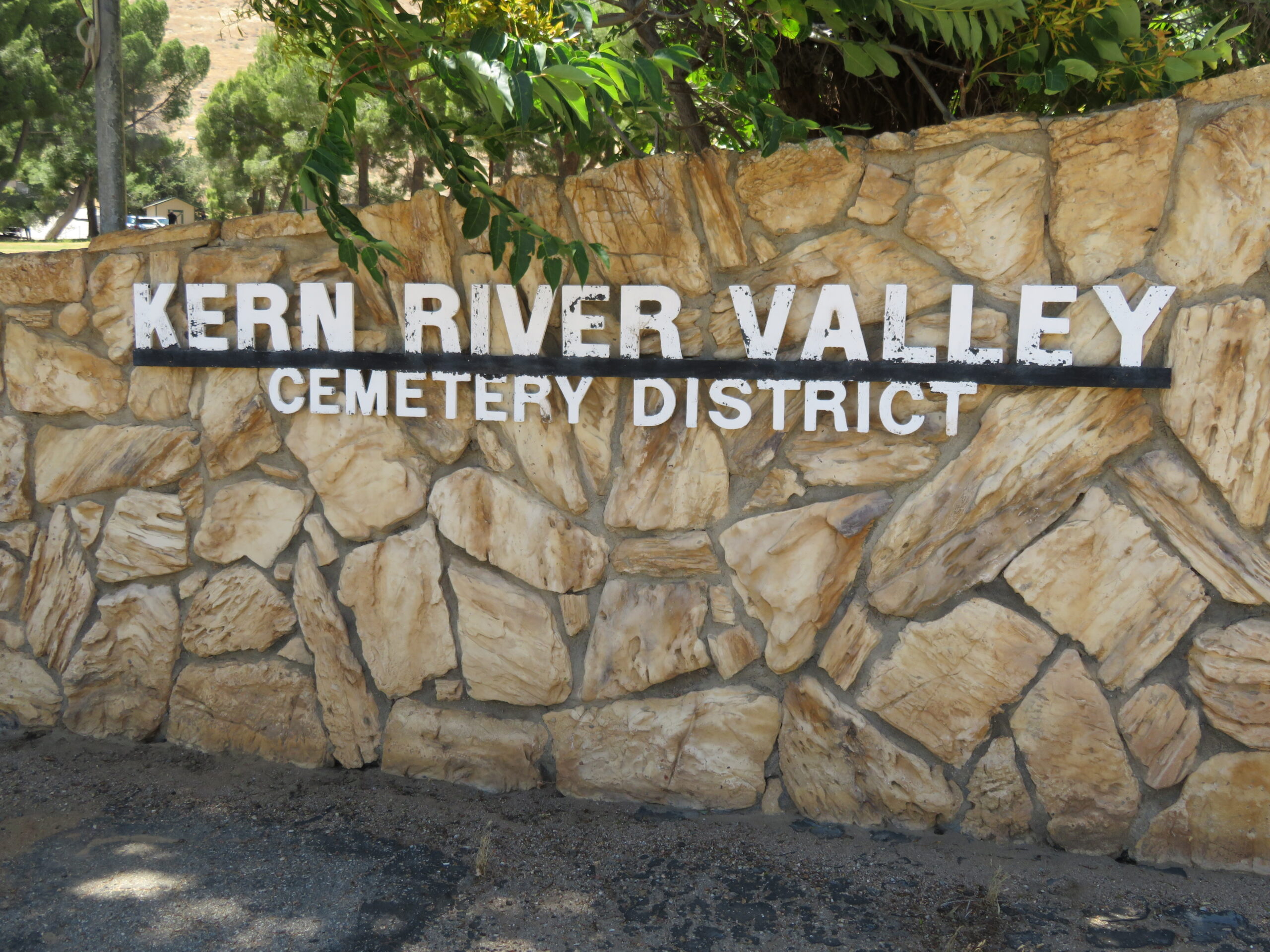Photos by Catherine Stachowiak
The Independent Living Center (ILC) of Kern County shared with the public how to be prepared for emergencies, Wednesday Oct 23, at the Kern River Valley Senior Center.
Lonnie Harris and Dan Urban are both special projects providers for the ILC. The gentlemen told the audience of caretakers and disabled members of the community that their organization partners with Senior Citizen, Inc.
Senior Citizen Inc reminded the public about the Meals on Wheels program just before the presentation began. The ILC presentation offered translation for the hearing impaired.
“We are a non profit that helps empower people with disabilities to live more independently,” said Harris. “As we age, or as we adjust to life with disabilities, it is important to stay safe during these emergencies.”
He gave the audience a power point presentation and an emergency preparedness booklet, 45 pages long, which was a take home the participants could read whenever they wanted.
“I’ve been certified by the governor’s office to incorporate access and functional needs into emergency preparedness. So basically we’re incorporating different types of disabilities and how to adapt,” he said.
After the presentation, ILC gave each participant a canvas Edison Go-bag from SCE with an American Red Cross first aid kit with over 100 first aid pieces of medical necessities. ILC also gave participants an emergency preparedness radio for power outages and hygiene kits and an energy saving light bulb.
Participants filled out emergency cards for emergency Red Cross shelters to have a list of the individual’s medication and doctor’s names.
Harris said, “All of our services that we offer at the Independent Living Center are free to consumers that have disabilities and live in Kern County.” He offered participants a pamphlet with services listed.
Urban said, “Emergency Preparedness is getting ready for unexpected events, like natural disasters, sickness outbreaks or accidents that can quickly hurt people or communities.”
Preparedness entails planning ahead with emergency procedures, gathering emergency supplies, and practicing what to do in drills. According to Urban this can make the bad situations less harmful and people better at dealing with the issue when it happens.
Identifying the most common emergency events in one’s locality is a good start. Another objective is creating a personally tailored emergency plan based on ones’ access and functional needs. The course included objectives such as identifying a personal support network and communication plan, and developing a basic understanding of Go Kits, and acquired a basic understanding of disaster emergency recovery and identified safety and support services.
Of most concern are circumstances, which could potentially prevent a person from effectively engaging with their environment and circumstances, which could prevent a person from accessing needed services, or information. Consideration for access and functional needs ought to be given with regard to chronic illnesses, disabilities, language barriers, and cognitive or developmental differences.
Participants expressed concerns about transportation during evacuations, and inability to get to evacuation centers. Facilitators told the group that under discussion would be the means of planning a personal support network for such situations.
Harris said, “The number one common emergency for this area is of course wild land fires.”
Harris and Urban showed the audience portable batteries SCE provides to those with disabilities who use durable medical equipment in their homes or are sensitive to extreme cold or heat and live in a high fire area. The batteries come from a grant from Southern California Edison for free to those with such disabilities. Public Safety Power Shutoffs (PSPS) cause SCE to preemptively shut off power in certain conditions, which are high winds, low humidity and high probability for admission to prevent the likelihood of fires.
Therefore ILC provides the batteries to keep power to essential equipment for disabled community members during such shutoffs. Anyone can request these batteries from ILC. During the event ILC did on-the-spot assessments for eligibility for those requesting backup batteries.
To qualify, individuals must have a disability, use durable medical equipment that requires electricity at home, and reside in a high fire-threat area. The Kern River Valley being a high fire-threat zone makes this program particularly vital for the community.
For further information please contact the Independent Living Center of Kern County
https://ilcofkerncounty.org/
